
Renting out a property in San Mateo requires you to understand all of the state, local, and federal laws that apply to you, your rental property, and your tenants.
As you surely know, California has some of the strictest rental laws in the country. They’re always evolving, too, so it’s important to stay up to date on where things currently stand on rent stabilization ordinances, just cause evictions, Section 8 tenants, and fair housing. The definition of an emotional support animal is always shifting, and your screening process might need to look different from year to year based on what can and cannot be considered in a background check. Your lease agreement must be current and include all the necessary legal language.
It’s easy to feel like you’re at risk of making an expensive legal mistake – because those mistakes are easy to make.
The laws you’re required to follow will generally depend on the type of property you’re renting out; specifically its age and the length of your lease agreements. A short term vacation home, for example, has an entirely different set of laws and requirements than a lease that’s a year or longer.
If you need a refresher on the latest rental laws affecting San Mateo properties, we’re providing that today. Remember that we are not attorneys, and this advice and information is coming to you from our expertise as a company providing property management services in the Peninsula.
Peninsula Property Management and California Fair Housing Laws
It’s important to know the fair housing laws before you even think about renting out a home anywhere in the country and especially in California. Our state’s fair housing laws go beyond the protections provided by the federal Fair Housing Act. There are more protected classes, and you need to be aware of this as you market your home, screen tenants, and make management decisions during the tenancy. The federal act has seven protected classes. In California, you cannot discriminate in rental housing based on seven federal classes as well as a few others. Here’s the full list:
- Race
- Skin color
- Religion or creed
- National origin or ancestry.
- Sex
- Physical or mental disability
- Familial status
- Sexual orientation
- Age
- Gender identification
- Gender expression
- Veteran or military status
- Citizenship
- Primary language
- Marital status
- Source of income
- Genetic information
This is a complex list that is always evolving. It’s mandatory that you keep up on all fair housing laws at a state, local, and federal level.
Rent Stabilization in San Mateo and the Peninsula
Call it rent stabilization or rent control; if you own a multifamily rental property that’s at least 15 years old, you likely need to pay attention to the laws that limit how much you can raise the rent on your tenants. The Tenant Protection Act went into effect on January 1, 2020, and that new law caps rental increases to five percent plus the cost of living increase set by the Consumer Price Index OR 10 percent; whichever is lower.
If you have not updated your lease agreement, you must do so immediately. California leases must reflect whether your property is bound by the statewide rent control law. The language has to be specific, so make sure you have an attorney-approved template or verbiage provided by a local San Mateo property manager.
Just Cause Eviction Laws
You can’t evict a tenant just because you don’t want them living there and you’d prefer to start over with a new tenant and a higher rental amount.
Just cause eviction laws are in place, and that means you need a legally valid reason to evict a tenant. If you’re evicting through no fault of theirs (for example, you plan to occupy the home yourself), you’ll need to pay your tenants a relocation fee that’s equal to one month’s rent.
You can still evict a tenant lawfully if they are at-fault. Those at-fault reasons are typically nonpayment of rent, breach of the lease, criminal activity, causing damage to the property, or creating a nuisance. At-fault evictions can also include:
- Refusal to execute similar new lease
- Subletting in violation of the lease
- Denying access by landlord after proper notice of lawful entry
- Using the unit for unlawful purpose
- Failure to vacate after tenant provides owner written notice of intent to terminate tenancy
Eviction laws in San Mateo are strict. Don’t try to remove a tenant on your own; contact a lawyer or get a referral from a Peninsula property management company.
Security Deposit Laws
Don’t make a security deposit mistake because if your tenant brings you to court and you lose, you’ll not only have to refund the full amount of the security deposit; you’ll also have to pay punitive damages that can equal three times the monthly rent. It’s easy to make a mistake with your tenant’s security deposit, and here’s what you need to know:
- Security deposit limits. There are limits to how much you can collect in a security deposit. For unfurnished units, you cannot charge more than two months’ of rent. If you’re renting out a furnished unit, you can charge up to three month’s rent for the security deposit.
- Deposits are refundable. There is no such thing as a nonrefundable security deposit.
Deposits must be returned within 21 days. At the end of the lease term, you have 21 days after a tenant moves out to return the security deposit and/or an itemized accounting of why money was withheld and what it’s being used for.
Always double-check your math and your documentation when you’re deducting from a security deposit.
 This is only a brief list of the laws you need to know when you’re renting out property in San Mateo. Working with a team that provides property management services in the Peninsula can help you protect yourself and your asset. Please contact us at Bayside Management. We lease, manage, and maintain investment properties in San Mateo and around the Peninsula, including San Carlos, Redwood City, Pacifica, San Bruno, Half Moon Bay, Daly City, Mountain View, Foster City, and Palo Alto.
This is only a brief list of the laws you need to know when you’re renting out property in San Mateo. Working with a team that provides property management services in the Peninsula can help you protect yourself and your asset. Please contact us at Bayside Management. We lease, manage, and maintain investment properties in San Mateo and around the Peninsula, including San Carlos, Redwood City, Pacifica, San Bruno, Half Moon Bay, Daly City, Mountain View, Foster City, and Palo Alto.
 Peter Boda
Peter Boda Jeff Hacker
Jeff Hacker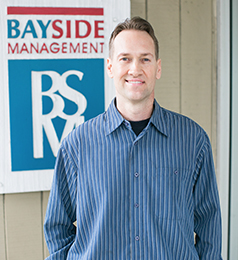 Dylan Motchar
Dylan Motchar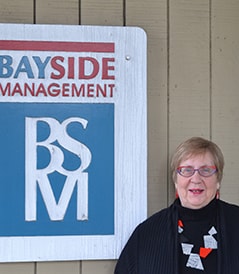 Barbara Boyd
Barbara Boyd Joanelle Russell
Joanelle Russell Mary Wiegmann
Mary Wiegmann Joseph DeNoia
Joseph DeNoia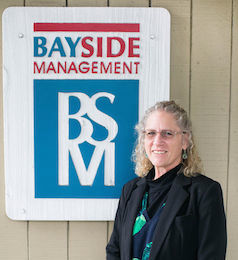 Beth Nagy
Beth Nagy Jasmin Peraza
Jasmin Peraza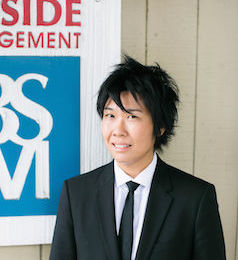 Carmin Wong
Carmin Wong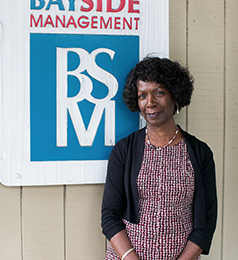 Pauline Smith
Pauline Smith Victoria Taylor
Victoria Taylor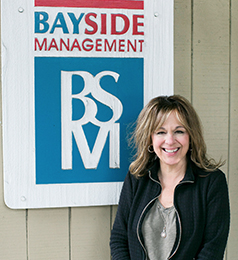 Yvette Perreca
Yvette Perreca Elizabeth Valladares
Elizabeth Valladares Anthony Thompson
Anthony Thompson Drew Reischl
Drew Reischl Nick Lange
Nick Lange Collette Counter
Collette Counter Justin Barton
Justin Barton